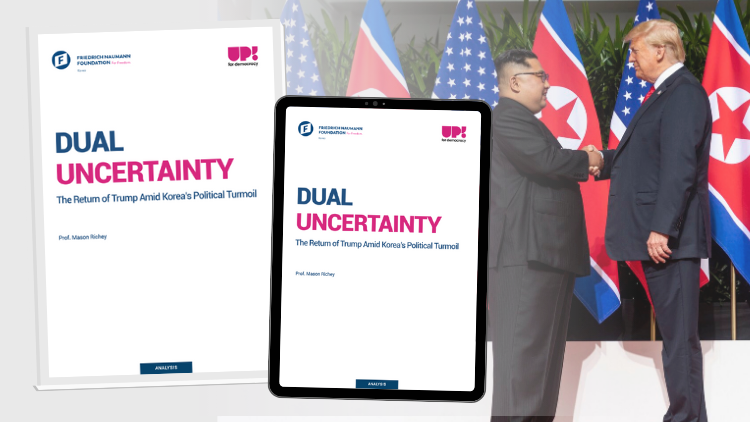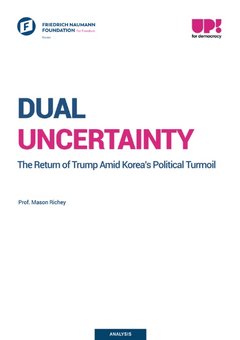Publication
Dual Uncertainty: The Return of Trump Amid Korea’s Political Turmoil

South Korea is facing a political crisis and is faced with the confrontational foreign policy of U.S. President Trump. A study by the Friedrich Naumann Foundation for Freedom warns of a weakening of deterrence against North Korea and potential tensions ahead of new negotiations between Trump and Kim Jong Un.
South Korea is experiencing a dramatic political crisis—and from January 20 onward, it will have to engage with U.S. President Donald Trump. A revised policy paper from the Friedrich Naumann Foundation for Freedom analyzes the potential impact of Donald Trump’s presidency and South Korea’s political crisis on the security situation in the entire region.
The study's author, Mason Richey, a professor at Hankuk University for Foreign Studies, anticipates a weakening of South Korea’s conventional and nuclear deterrence, as the U.S. might scale back its support for South Korea or at least threaten to do so.
The resumption of talks between Trump and North Korean leader Kim Jong Un remains within the realm of possibility; the two leaders previously held summits in Singapore and Hanoi in 2018 and 2019. Trump’s potential goal could be to weaken North Korea’s alliance with China, which he views as the most dangerous rival to the U.S.
However, increased tensions are expected before any rapprochement between the two states takes place. “Both Washington and Pyongyang would have incentives to engage in brinkmanship—e.g., threats, weapons tests/demonstrations, North Korean provocations, U.S.-South Korea military exercises—in the lead-up to any potential negotiation, in order to build maximal leverage,” Richey writes.
Two conditions would increase the likelihood of diplomatic rapprochement between Trump and Kim: a new, progressive president in South Korea, and an end to Russia’s war of aggression against Ukraine. The latter would likely reduce Russia’s support for North Korea, making U.S. relations more important for Pyongyang.
Given the uncertainty in the region and the U.S.’s likely focus on China, Richey recommends that the EU improve its own security and defense capabilities to become less dependent on the U.S. He also advocates for deeper cooperation with strategic partners in the Indo-Pacific, including the targeted deployment of select military resources where they can contribute to regional stability.
